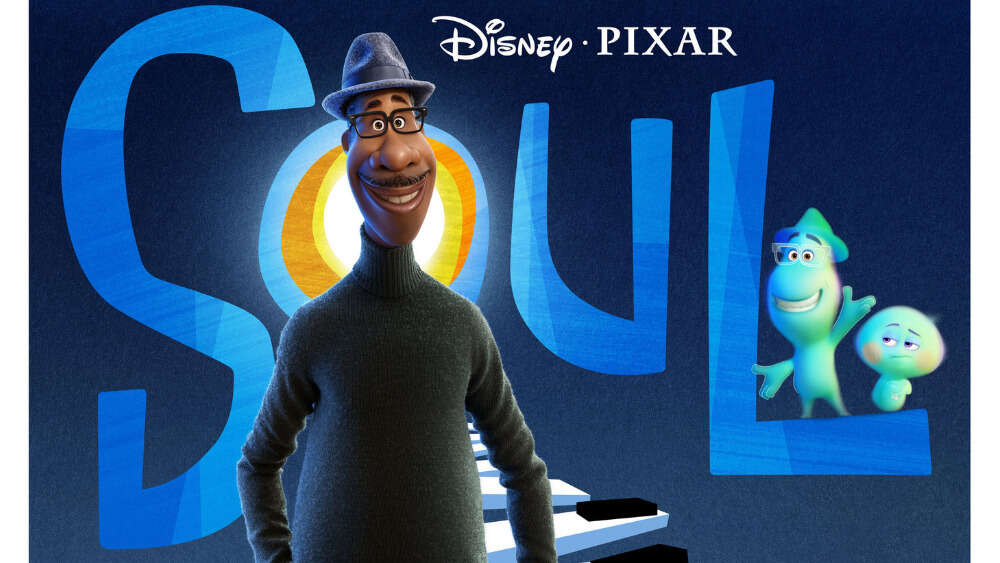“You can’t explain E flat (Eb). You have to play it.” – Bradley Cooper
Some movies are a must watch. Soul – Disney’s most recent big release – is more than that. Soul must be experienced. The film just goes there. In fact, I’d say it’s probably the most existentially ambitious film ever attempted by Disney.
But first, let’s deal with the elephant in the room: What is with Disney & Pixar these days?
The two giants of animation appear to have traded in the old ‘hero’s journey’ for scripts that explore life’s deepest questions. Questions like, “Why do I exist?”, “What’s the point of being alive?” and “What about my passions and purpose – do they matter?” are becoming their regular fare.
It’s down this existential pathway that Soul leads viewers, personifying concepts in characters and creative visualisations.
Mind you, Soul’s exploration is completely in line with what Walt Disney said he intended his company to be: “There’s really no secret about our approach. We keep moving forward—opening up new doors and doing new things—because we’re curious. And curiosity keeps leading us down new paths.”
If you’ve seen the trailer, you’ll know that the film begins with lead character, Joe (voiced by Jamie Foxx) – a middle-grade band teacher – getting an audition to be pianist for legendary jazz saxophonist Dorothea (voiced by Angela Bassett) through one of his former students.
Joe gets the gig, and this is where the movie takes a sharp right-hand turn. After his audition, Joe falls down a manhole and, well, dies.
Without giving too much away, he runs away from The Great Beyond (Heaven), because he’s not done with living yet and ends up in a place called The Great Before, which is where new souls are created and mentored before they are sent to Earth to inhabit a body. Joe becomes a mentor to “22” (voiced by Tina Fey) – a rebellious soul that has no desire to go to earth and become part of a human. 22 does, however, end up on earth with Joe, and so together they learn and relearn who Joe is, what his spark is, and what truly living looks like.
And so the film questions the notion of personal fulfilment. Joe dies on the edge of doing what he loves as a full-time job and of seeing dreams fulfilled. Yet Soul asks, “Does truly living come only by doing what you love?”.
For a studio that has historically advocated a narrative where the hero wins at all costs, it’s a refreshing take by Disney. Not only do they tackle the question, they also present an alternative viewpoint in answer. And best of all, this ‘challenge to the norm’ is achieved through a delightfully unassuming-but-intentional scene in a barber shop which brings a grounded, real-life perspective to Joe’s aspirations.
Soul asks, “Does truly living come only by doing what you love?”
It is fascinating to me that Disney “goes there” – into this whole thematic ‘soul realm’. But why? What did Soul’s writers observe about our present day, and why did they choose to speak to it?
When watching Soul, the scripture that came to my mind was John 10:10b: “…I have come that they may have life, and have it to the full.”
After a little bit of Bible study I learnt that the Greek word for ‘life’ in this passage of scripture is “zoe”. Zoe, I learned, refers to the idea of life ‘in the spirit and soul’. For me, this is about living life in full connection to God, his design and purpose for us – but not at the expense of our souls. As Jesus outlines in Matthew 16:26, “What good will it be for someone to gain the whole world, yet forfeit their soul?”
Soul’s team at Disney seem to have developed this film with an understanding that we are living in a passion and purpose driven world, where people sacrifice all sorts of things to be successful. Yet this film proposes a refreshing angle on the role passion and purpose should play in our lives. It encourages being present, enjoying the gifts of creation, relationships and beauty, in all its forms.
And at the end of a weird, annoying, disappointing, isolating, exhausting and frustrating year for many of us, perhaps it’s a good time to be asking ourselves, “What could ‘life to the full’ look like for me?”. I would even add to that, and ask “What could life ‘in the spirit and soul’ look like for me?”.
One of my favourite aspects of Soul was its depiction of creative transcendence – that moment we have all experienced when someone’s passion or art leads you to feel things you just can’t explain. In Soul, this is referred to as someone being “in their zone” and there’s a specific moment where Joe improvises on the piano – known as “jazzing” – and gets lost in the moment. The result is stunning – albeit it almost impossible to explain in an article.
Which leads me to quote by Oscar-nominated actor and director Bradley Cooper that I put at the top of this article: “You can’t explain E flat (Eb). You have to play it”. This is precisely how I feel about Soul. Despite my best efforts here, the reality is that Soul is not a film to be explained, it’s a film to be experienced.
But let me flag just one last thing, borrowing again from another’s words – this time author Anne Lamott: “Soul is profound and charming. Avoid it if you’re not in the market for transformation”.
Directed by Academy Award® winner Pete Docter (“Inside Out,” “Up”), co-directed by Kemp Powers (“One Night in Miami”) and produced by Academy Award nominee Dana Murray, p.g.a. (Pixar short “Lou”). Disney and Pixar’s “Soul” is available exclusively on Disney+.
Email This Story
Why not send this to a friend?


